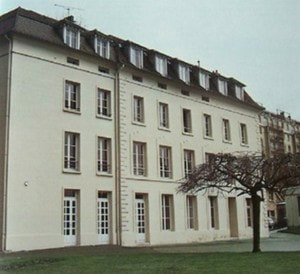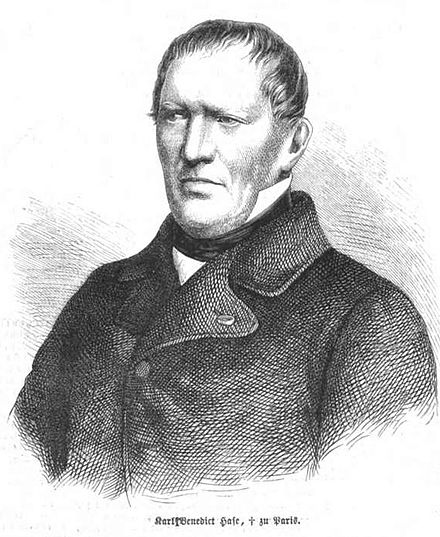|
After Condorcet's death, Sophie kept up her salon, first in Auteuil, in the house next to Madame Helvetius, and later in Meulan, close to the castle of Villette where she had grown up. The house she bought had been built in 1642 by Anne of Austria for the religious order of the Annonciades. It was several storeys high and set in the countryside, between the town and the castle of Villette. The nuns who’d occupied it had been evicted 5 years previously and the house had already exchanged hands a few times. Sophie called it the ‘Maisonnette’ or little house, despite its generous size. One of the rooms was a large salon where she could host her philosophical circle, and there were several bedrooms upstairs for guests. (for more on the purchase and the set up of the house, see Madeleine Arnold-Tetard's excellent blog.) Sophie’s salon was a place where she could discuss her ongoing work with close friends such as Cabanis, it was a meeting place for the Ideologues, and it also played a role in facilitating other’s literary careers. Karl Benedikt Hase, a Byzantine expert who came to play an important role in the literary world of 19thCentury Paris, was first introduced to this world by a chance meeting with Sophie de Grouchy. Having walked on foot to Paris from Weimar, and arriving a poor student, he was recommended to various people for his knowledge of Ancient Greek, and brought to Meulan by Sophie’s lover, Fauriel: I already talked about Madame Concordet in one of my letters. I got to know her by chance; she wanted to learn German and a certain Fauriel, private secretary to the police minister, with whom I sometimes spend the evenings, sent me to her. It was the 28th Frimaire; look up the date and underline it, it is one of the most important in the life of your friend. I’ll admit it – the clear mind of this wonderful woman, her joy in the all-pervasive progress of humanity to a marvellous goal, her knowledge of the great moments of the revolution, in which she herself played a not insignificant role (on the day before the 10th August, when Concordet, her husband, played host to 400 Marseillese, she was the queen of the party), perhaps also her friendly attitude towards me – for my significant progress in French pronunciation, which has astonished everyone, was thanks to my reading French tragedies aloud to her – could not fail to have an effect on me.
0 Comments
Leave a Reply. |
About
This is where I live blog about my new book project, an intellectual biography of three French Revolutionary women philosophers. Categories
All
Archives
November 2022
|


 RSS Feed
RSS Feed